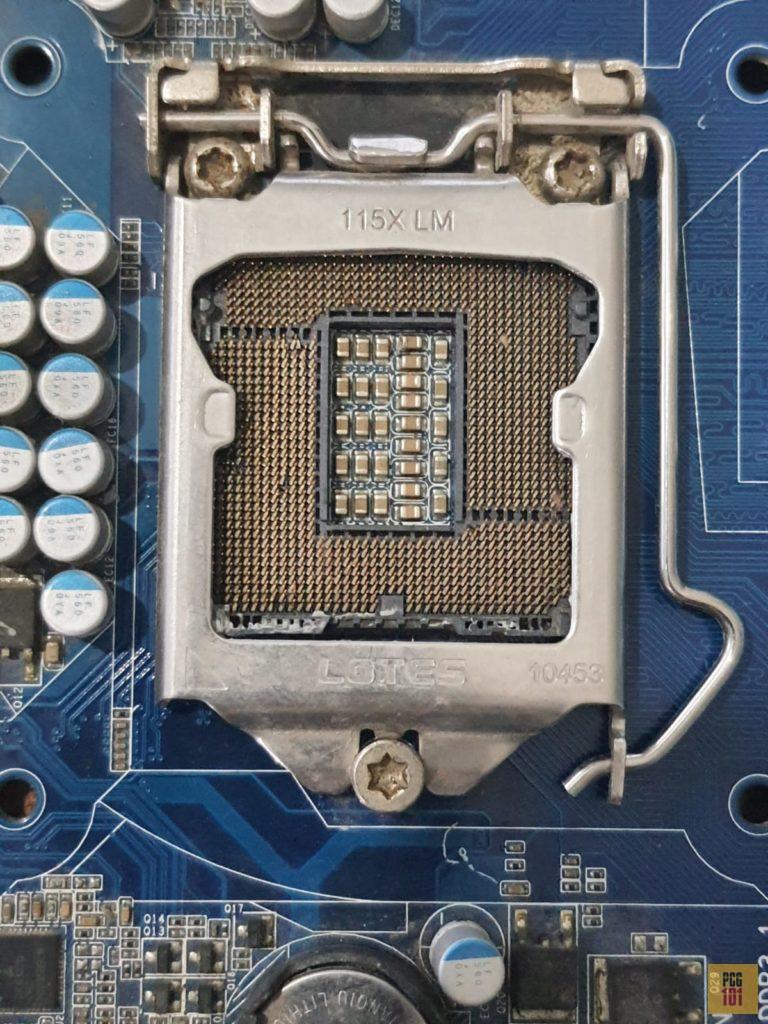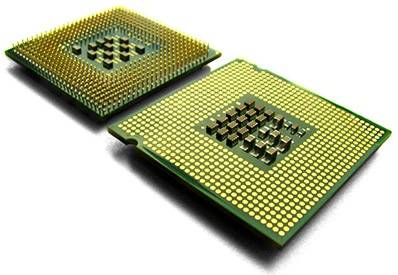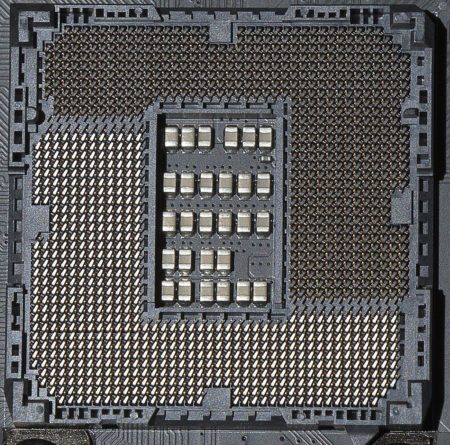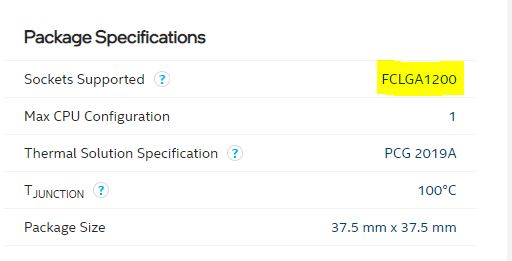Do I Need To Change My Motherboard If I Change My Processor
The short and simple respond to this query is yes, you can upgrade the CPU on your PC without irresolute your motherboard.
However, the CPU that you lot want to upgrade to has to be compatible with your motherboard equally well.
To decide the compatibility of the CPU with the motherboard, you have to cheque the socket details on your motherboard and the CPU.
In the following text, nosotros volition look in depth into whether you lot tin can upgrade CPU without changing the motherboard and the precautions to take note off when doing and then.
What is the Motherboard's CPU Socket?

A CPU socket, or a CPU slot, is the main placeholder for the CPU located on the motherboard.
It has the necessary pins, the dimensions as well as the harness to agree the CPU on to the motherboard.
The socket itself is very easy to spot on any given motherboard.
Socket Surface Mounting Technology
In that location are generally two types of socket surface mounting technologies that are institute on desktop PCs: LGA and PGA.

LGA stands for Land Grid Array. With this technique, the socket on the motherboard has visible pins sticking out whereas the CPU itself as flat contacts. This technique is primarily used by Intel CPUs.
PGA stands for Pin Filigree Assortment. With this technique the socket on the motherboard does not have whatsoever pins. Instead the CPU has the pins that plug into the individual smaller holes on the socket. AMD CPUs brand use of this technique primarily.
Both surface mounting technologies have their Pros and Cons, but the crucial commonality betwixt the two is that the CPU can be changed and upgraded if they follow either of the two techniques.
At that place is as well a third Surface Mounting Technology called BGA. This stands for Ball Filigree Array. With this technique, the CPU is soldered onto the motherboard itself and thus upgrading is not possible. This technique is found on laptops.
Also Read in Item:
- LGA vs PGA
- LGA vs BGA
Socket Pin Count

One of the chief feature that distinguishes one CPU socket from the other is the corporeality of Pins it has. These are basically the primary contact points betwixt the CPU and socket.
For instance, the older 9th Gen Intel Cadre processors support the LGA1151 socket. LGA here stands for Land Grid Array and the number "1151" relates to the total amount of contact points the CPU has.
The newer 11th gen Intel CPU use the LGA1200 socket with "1200" pins/contact points. Hence given the amount of pins, the 11th gen CPU would not exist physically uniform with motherboards designed to support the 9th Gen Intel CPU i.e LGA1151 socket.
Common Sockets Being Used Today
The following is a brusk list of sockets and their compatible CPUs
| Socket | CPU Supported |
| LGA 1151 | Intel 7th, 8th and 9th Gen Desktop CPUs |
| LGA 1200 | Intel 10th and 11th Gen Desktop CPUs |
| AM4 | AMD k, 2000, 3000, 400 and 5000 series Desktop CPUs |
| LGA 2066 | Intel 10th Gen Core Farthermost Processors (Workstation Grade) |
| sTRX4 | AMD Threadripper Processor (Workstation Grade) |
Also Read: Where is the CPU Located in a Calculator?
How to Check the Socket Information on Motherboard and CPU?
You tin can find out the socket information for both the motherboard likewise as the CPU on their respective specsheet.
Checking CPU Socket
Nigh all CPUs have information regarding the socket they support available online.

Reading the specsheet above for Intel Core i7-11700K CPU shows that it supports the LGA1200 socket.
Checking Motherboard Socket
Similarly, you tin can check the socket information regarding your motherboard on its specsheet.

For instance, a simple search for the ASUS Z590-A reveals that this motherboards offers the LGA1200 socket.
Both CPU and the motherboard sockets have to be same in order for them to be compatible with each other.
So Can You Upgrade CPU Without Changing the Motherboard?
If both the socket on the motherboard and the socket supported past the CPU are the same, and so yes, you CAN upgrade the CPU without changing the motherboard.
For instance if you have a motherboard with the LGA1200 socket and if you are currently using a 10th Gen Intel Core i3 processor on it which also supports the LGA1200 socket and so y'all tin can upgrade to a better processors within the tenth generation itself (i.due east to 10th Gen Intel Core i5 or Intel Cadre seven) too as upgrade to processors from the newer 11th Generation t00 since the 11th Gen CPUs besides back up the same LGA1200 socket.
If you take an older ninth gen CPU with the LGA1151 socket, yous would be able to upgrade to a improve CPU Inside the 9th generation but not to the newer 10th and 11th gen CPUs.
Also Read in Detail: What CPU is Compatible with my Motherboard
CAVEAT: Motherboard Chipset and BIOS Version Plays a Disquisitional Role in Compatibility As Well
Socket compatibility is the first and the foremost important characteristic that determines whether you can install a newer CPU on a motherboard or not.
However, sometimes equally important is the motherboard chipset model; particularly the details regarding the release date of the chipset in relation to the CPU you lot desire to upgrade to.
Basically, a socket can remain the aforementioned across multiple CPU and motherboard chipset generations. Nevertheless, if a CPU is newer compared to the motherboard chipset, then information technology tin requite rise to BIOS Version compatibility issues.
Take the mid range B series AMD motherboards for example. The older AMD B350 released back in 2017, AMD B450 released back in 2018 besides as the newest B550 released in 2020 all feature the AM4 socket.
However, the earliest B350 was released at the fourth dimension when Ryzen 1000 series CPU had hit the market. Therefore, if you lot were to install the newest 5000 serial CPU on a B350 motherboard, it volition well-nigh likely not work despite the sockets being uniform.
Why? But because the stock B350 chipset uses the older BIOS version. Therefore, the simplest solution here is to update the BIOS to the latest version or to the version that specifically supports the CPU you want to upgrade to.
As well Read: Tin can I Use Laptop CPU in Desktop?
FAQ
Tin You Upgrade CPU on a Laptop?
As touched on earlier, laptops use the BGA socket. Hither the CPU is soldered onto the motherboard. Therefore, upgrading in this instance is almost impossible.
Certain older laptops do brand use of the LGA sockets. However, nearly, if not all, of the newer laptops use the BGA socket.
We take a comprehensive article on this topic: Can I Upgrade My Laptop Processor from i5 to i7?
Can You Observe CPU Socket Adapters?
No, you cannot.
At that place one time was an thought floated that would have allowed an incompatible CPU to piece of work on a motherboard via the use of a CPU socket adapter.
Still, this was abandoned every bit the adapter itself costed as much as a newer motherboard.
Also Read:
- Does My Motherboard Support NVME SSD
- Does Motherboard Matter for Gaming?
Terminal Words
So the reiterate the points made, the virtually important characteristic to look at when determining if you tin upgrade CPU without changing the motherboard is to check if both the CPU uses the same socket.
The adjacent thing that you may want to check is the BIOS version particularly if the CPU is from a newer generation or if it was released old after motherboard's chipset release date.
Source: https://pcguide101.com/cpu/can-you-upgrade-cpu-without-changing-the-motherboard/
Posted by: francisstims1950.blogspot.com


0 Response to "Do I Need To Change My Motherboard If I Change My Processor"
Post a Comment